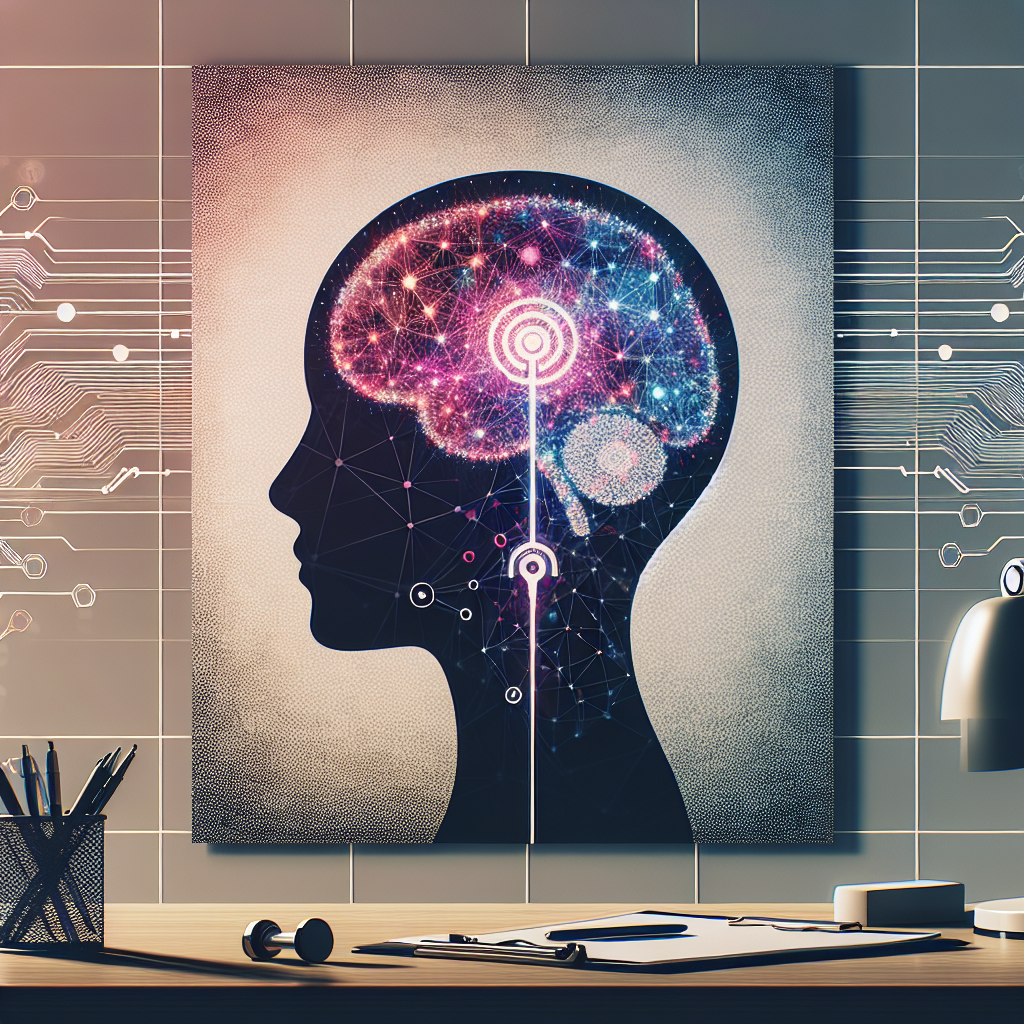AI and Machine Learning: The Future of Mental Health Diagnosis
In recent years, there has been a growing interest in the use of artificial intelligence (AI) and machine learning in the field of mental health diagnosis. With the increasing prevalence of mental health disorders worldwide, there is a pressing need for more accurate and efficient methods of diagnosing and treating these conditions. AI and machine learning offer a promising solution to this challenge by enabling healthcare professionals to analyze large amounts of data and identify patterns that may not be apparent to the human eye.
What is AI and Machine Learning?
AI refers to the simulation of human intelligence in machines that are programmed to think and learn like humans. Machine learning, a subset of AI, involves the use of algorithms that allow computers to learn from and make predictions or decisions based on data. These technologies have the potential to revolutionize the way mental health disorders are diagnosed and treated.
How AI and Machine Learning are Revolutionizing Mental Health Diagnosis
1. Early Detection: One of the key benefits of AI and machine learning in mental health diagnosis is the ability to detect early warning signs of mental health disorders. By analyzing data such as electronic health records, social media activity, and smartphone usage patterns, AI algorithms can identify individuals who may be at risk of developing a mental health condition. This early detection can enable healthcare professionals to intervene and provide timely treatment, potentially preventing the onset of more severe symptoms.
2. Personalized Treatment Plans: AI and machine learning can also be used to develop personalized treatment plans for individuals with mental health disorders. By analyzing a patient’s unique characteristics, including genetic, biological, and environmental factors, AI algorithms can recommend the most effective interventions for that individual. This personalized approach can improve treatment outcomes and reduce the risk of adverse effects from medications or therapies.
3. Predictive Analytics: AI and machine learning can be used to predict the likelihood of relapse or recurrence of mental health disorders. By analyzing data from previous episodes, treatment outcomes, and lifestyle factors, AI algorithms can generate predictive models that help healthcare professionals anticipate when a patient may be at risk of a relapse. This information can inform treatment decisions and enable proactive interventions to prevent worsening of symptoms.
4. Remote Monitoring: AI and machine learning technologies can facilitate remote monitoring of individuals with mental health disorders. By analyzing data from wearable devices, smartphone apps, and other digital tools, AI algorithms can track changes in a patient’s behavior, mood, and physiological indicators in real-time. This remote monitoring can provide healthcare professionals with valuable insights into a patient’s condition and enable timely adjustments to treatment plans.
5. Improved Diagnostic Accuracy: AI and machine learning can enhance the accuracy of mental health diagnosis by analyzing a wide range of data sources and identifying subtle patterns that may be missed by traditional diagnostic methods. By combining clinical data with information from imaging studies, genetic tests, and other sources, AI algorithms can provide a more comprehensive assessment of a patient’s condition and improve diagnostic accuracy.
Frequently Asked Questions
Q: How accurate are AI algorithms in diagnosing mental health disorders?
A: The accuracy of AI algorithms in diagnosing mental health disorders varies depending on the specific application and the quality of the data used. In general, AI algorithms have shown promising results in identifying patterns and predicting outcomes in mental health conditions, but further research is needed to validate their performance in clinical settings.
Q: Can AI replace human healthcare professionals in diagnosing mental health disorders?
A: AI is not intended to replace human healthcare professionals in diagnosing mental health disorders. Instead, AI technologies are meant to assist healthcare professionals by providing them with valuable insights and recommendations based on data analysis. The final diagnosis and treatment decisions should always be made by a qualified healthcare provider.
Q: Are there any ethical concerns associated with the use of AI in mental health diagnosis?
A: There are ethical concerns related to the use of AI in mental health diagnosis, including issues of privacy, data security, bias, and transparency. It is important for healthcare organizations to implement robust safeguards to protect patient data and ensure that AI algorithms are used ethically and responsibly.
Q: How can individuals benefit from the use of AI in mental health diagnosis?
A: Individuals can benefit from the use of AI in mental health diagnosis by receiving more accurate and timely diagnoses, personalized treatment recommendations, and proactive monitoring of their condition. AI technologies can help individuals better understand their mental health and access the care they need to improve their well-being.
In conclusion, AI and machine learning have the potential to revolutionize the field of mental health diagnosis by enabling healthcare professionals to analyze large amounts of data, identify patterns, and make more accurate and personalized treatment decisions. While there are challenges and ethical concerns associated with the use of AI in mental health diagnosis, the benefits of these technologies are clear. By harnessing the power of AI, we can improve the lives of individuals with mental health disorders and provide them with the care they need to thrive.

